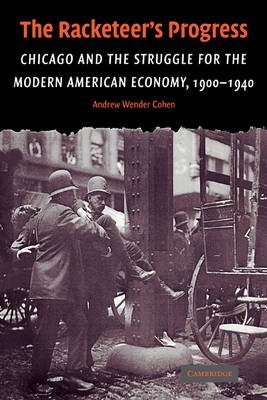The Racketeer's Progress explores the contested and contingent origins of the modern American economy by examining the violent resistance to its development. It explains how carpenters, teamsters, barbers, musicians and others organised to thwart ambitious national corporations. Unions and associations governed commerce through pickets, assaults and bombings. Scholars often ignore this defiance, painting modernisation as a consensual process and presenting craftsmen as reactionary, corrupt and criminal. This is ironic, for the tradesmen's reputation derives from their successful struggle to control modernisation and the emerging consumer economy. Their resistance redirected American law. Progressive-era courts rebuked the craftsmen for attempting to govern trade. In the 1920s, the tradesmen inspired new criminal concepts, such as 'racketeering'. But the Great Depression reversed harsh laws. The craftsmen became a model for New Deal recovery statutes and a focus for constitutional debates. Meanwhile, the state began protecting unions against gangsters like Al Capone.
- ISBN13 9780521124508
- Publish Date 10 December 2009 (first published 3 May 2004)
- Publish Status Active
- Publish Country GB
- Imprint Cambridge University Press
- Format Paperback (US Trade)
- Pages 352
- Language English
